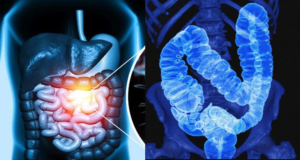 RNS: Researchers at Newcastle University have achieved a significant breakthrough in the early detection of bowel cancer using artificial intelligence (AI). The COLO-DETECT trial, conducted in partnership with South Tyneside and Sunderland NHS Foundation Trust, has demonstrated the AI’s superior efficiency in identifying potential cancerous abnormalities during colonoscopies.
RNS: Researchers at Newcastle University have achieved a significant breakthrough in the early detection of bowel cancer using artificial intelligence (AI). The COLO-DETECT trial, conducted in partnership with South Tyneside and Sunderland NHS Foundation Trust, has demonstrated the AI’s superior efficiency in identifying potential cancerous abnormalities during colonoscopies.
The trial, which involved 2,032 patients across 10 centers in England, utilized the GI Genius™ AI device. This advanced AI technology, integrated with existing colonoscopy equipment, proved highly effective in detecting adenomas—tumors that can develop into cancer.
As a result of these promising findings, the South Tyneside and Sunderland NHS Foundation Trust will continue to use the AI technology in its Endoscopy units at South Tyneside District Hospital and Sunderland Royal Hospital.
Professor Colin Rees, the lead investigator and Professor of Gastroenterology at Newcastle University, expressed his enthusiasm about the trial’s outcome, stating, “We are delighted with the results. This technology will save lives by significantly increasing the detection of bowel abnormalities that could progress to cancer. The AI helps us find and remove lesions before they turn into cancer.”
The COLO-DETECT trial was a randomized controlled study comparing colonoscopies with and without AI assistance. The AI system enhances the procedure by highlighting potential polyps on the screen, which helps clinicians decide whether to remove them.
With approximately 43,000 new cases of bowel cancer diagnosed annually in the UK, Professor Rees hopes the AI technology will see wider adoption. He emphasized the importance of early detection, noting that bowel cancer often develops over a long period, providing a crucial window for intervention.
“The tragedy is that bowel cancer is a preventable disease,” said Professor Rees. “We have a decade or more from the initial polyp stage to potential cancer development. The AI’s ability to continuously learn and improve its detection capabilities makes it a vital tool for early diagnosis.”
The results of the COLO-DETECT trial were published in Lancet Gastroenterology and Hepatology on August 14, 2024.



